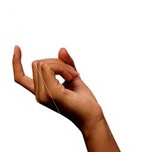I seriously need to get out of my shell and hopefully you guys don’t get bored reading this because it’s so long (lol). This week's blog will be a little personal, but I would like to share this to all of you.
When I was young, I loved performing and I was very talkative. But what happened to the confident me?
What you see outside of me, as in the way I show myself is not who I really am. I am constantly labeled as the girl who doesn’t like talk, the shy one, the boring one, the girl who doesn't like to do anything, etc. It hurts to hear that because I know deep inside that is not who I am. However, that is how I portray myself. Some sociologist says that stereotype continues to exist because we make it as our strength. We make the negative part of it into something positive. Not all of you may agree on that theory or may not even understand what I was trying to say, but I think that's the reason why the constant labeling towards me molded me to “who I am.” Because I am constantly being called as a shy person, I became a shy person. Because I am constantly being called a quiet person, I became a quiet person. I was labeled before they knew who I really was. And the sad part is, I just let people mold me into something I'm really not.
Since I am shy, I prevent myself from being humiliated. Therefore, I don’t speak. Because I “ignore” people they think that I am a snob or unfriendly. However, when I know you and choose not to talk to you, it usually means I don’t like talking to you (lol). I will still be friendly, but if you’re someone who forces your opinion even if 5 people with proof of evidence gank up on you saying that you are wrong, then I just find that annoying. And if you’re someone who constantly talks about yourself, calling yourself the best, think you’re better than everybody else, and simply a know-it-all, then yeah I would not want to have a long conversation with you. Wow, sorry if I sounded like a b!tch (LOL). Reason why I avoid people like that is because I don’t want to start and fuss. So it’s better to not say anything at all.
Here’s a funny one. My friends would ask me why I did not say hi to them. The reason is that I don’t like the feeling of embarrassment and stupidity when I try to say hi to someone because they did not hear me or see me at all.
I would like to show a few facial expressions and what they really mean when I portray them. Hopefully after clarifying these, people would stop misinterpreting my expressions when they see me.
This is so not my angry face. I hate wearing contacts and glasses so I have to constantly squint. And no, I am not staring you down. I'm just trying to see if I know you are, so sorry if it looks like I’m mad at you. I seriously need to get contacts (lol).
I am not sad. This expression usually means exhaustion or I could be thinking about something.
And sorry if I look irritated. I’m just hungry (lol).
Look how much I opened up. I even showed you guys how I look like when going to bed (lol)! But don’t you just <3 my bun? ^-^v






